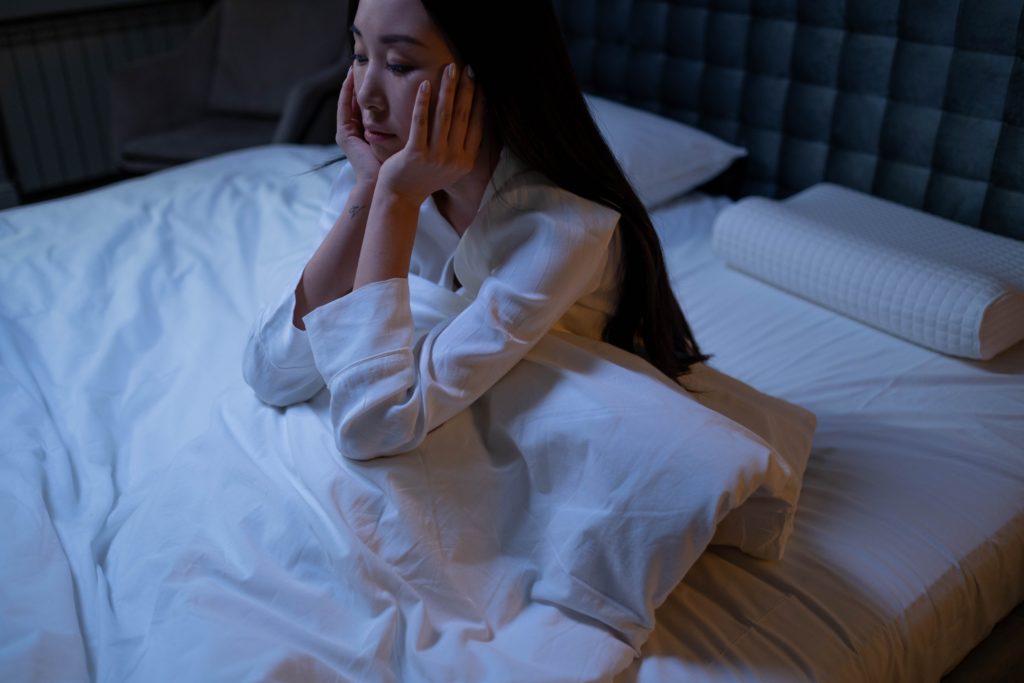
The need for sleep is so important that it will outweigh even the need for food. Sleep reloads the body’s systems, allows you to feel energetic and productive. Normal sleep is regulated by neurotransmitters: melatonin and serotonin, designed to help cope with stress.
Insomnia is a condition in which it is difficult to fall asleep or maintain long-term sleep that lasts from several days.
In a state of stress, high levels of adrenaline lead to the fact that even during sleep the body does not rest, but continues to work actively. This makes a person wake up even more tired. There is a “vicious circle”: stress causes insomnia, and insomnia increases stress.
Prolonged stress, high levels of anxiety, tragic events can cause chronic insomnia. The situation is complicated by the use of coffee, tea, beverages with caffeine, nicotine, alcohol…
The most common signs of insomnia are:
a person has difficulty falling asleep, even if he feels very tired during the day;
wakes up several times a night, inability to sleep at night, feels tired after waking up;
difficulty concentrating, feeling drowsy during the day.
due to lack of sleep there is fatigue, somatic diseases, hallucinations may occur.
If you are in at least a relatively safe place to sleep, you can use the following methods:
Try to go to bed and get up at the same time, even if you do not sleep. You should choose the time when you feel the most drowsy. Remember that the first 3 hours of sleep allow the body to recover by 70%.
Try to fall asleep before midnight for maximum melatonin production
Do not read the news at least half an hour before bedtime
If there is a need to monitor air alarms – it is better to alternate with each other, so that others had the opportunity for at least 3 hours of sleep without breaks
20 minutes of sleep during the day can also significantly improve well-being and restore strength
Use breathing techniques: listen to your own breathing, try to inhale and hold your breath, exhale slowly
Before going to bed, apply a mini-screening of bodily sensations: listen carefully to your own breathing, focus on the sensations in the fingers, gradually raising the inner gaze of attention above the elbows, shoulders… Also “scan” the rest of the body with the inner gaze.
If you can’t fall asleep, try to get up and do things that are usually soothing: reading a book, knitting…, but NOT watching the news. Go to bed as soon as you feel the urge to fall asleep.
Light exercise during the day and at least a minimum stay in the fresh air between air alarms will increase the likelihood of falling asleep on time.
Restore, as far as possible, the pre-war life schedule. Routine activities allow you to distract from stress and maintain a normal rhythm of life.




